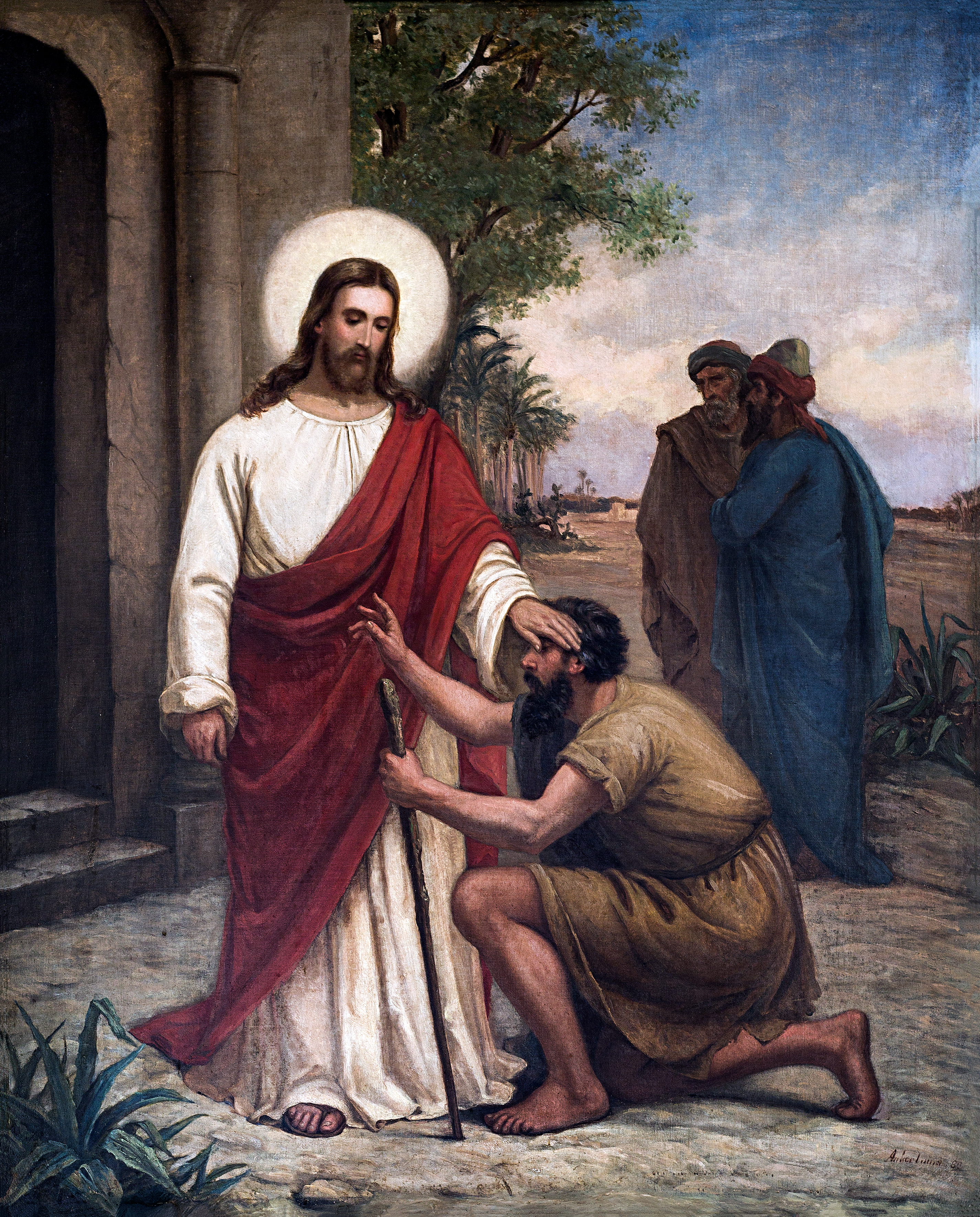At first glance this Gospel seems to suggest relativism. The law says all that can and cannot be done on the Sabbath and it is held dear to the Jews. Then there is Jesus’ question, “Who among you, if your son or ox falls into a cistern, would not immediately pull him out on the sabbath day?” (Luke 14: 5). It almost suggests that the law is law until there is an exception and we know that once exceptions start, the law starts ending.
We see it often now. For example, the Catholic Church opposes contraception, but some would say birth control is ok if such and such were the case. The exceptions begin to supersede the teaching.
I didn’t think this is what Jesus was saying but I was still confused so I asked my parish priest. Happily, he came over for dinner about the time I was writing this. He suggested looking at what the law is directing us to – God himself. Our end goal in everything is eternal unity with God. In healing the man with dropsy, Jesus is beginning that union. He, God made Man, initiated the healing, and doesn’t He have the authority to create what we as mere humans would see as an exception to the law? In His infinite and ineffable wisdom, He knew that in order to help this particular man, healing had to happen at that time on that day.
We all need healing, whether it’s from deep wounds that still scar us, or the battle wounds from living in a broken world as a broken human. Wouldn’t we rather have a Savior who lovingly gives us what we need when we need it rather than one who says, “Come back Monday when the office is open”?
So instead of focusing on the law itself or the exceptions to it, let’s focus on God’s unfathomable love and His perfect timing.
A primera vista, este Evangelio parece sugerir relativismo. La ley dice todo lo que se puede y no se puede hacer en sábado, y es muy apreciada por los judíos. Luego está la pregunta de Jesús: “Si a alguno de ustedes se le cae en un pozo su burro o su buey, ¿no lo saca enseguida, aunque sea sábado?” (Lucas 14:5). Casi sugiere que la ley es ley hasta que haya una excepción, y sabemos que una vez que comienzan las excepciones, la ley comienza a terminar.
Lo vemos a menudo ahora. Por ejemplo, la Iglesia Católica se opone a la anticoncepción, pero algunos dirían que el control de la natalidad está bien si tal o cual es el caso. Las excepciones comienzan a invalidar la enseñanza.
No pensé que esto fuera lo que Jesús estaba diciendo, pero seguía confundida, así que le pregunté a mi párroco. Afortunadamente, vino a cenar cerca del tiempo que estaba escribiendo esta reflexión. Sugirió que consideráramos a qué nos dirige la ley: a Dios mismo. Nuestro objetivo final en todo es la unidad eterna con Dios. Al sanar al hidrópico, Jesús inicia esa unión. Él, Dios hecho hombre, inició la sanación, ¿y acaso no tiene la autoridad de crear lo que nosotros, como simples seres humanos, consideraríamos una excepción a la ley? En su infinita e inefable sabiduría, sabía que para ayudar a este hombre en particular, la sanación debía ocurrir en ese momento, en ese día.
Todos necesitamos la sanación, ya sea de heridas profundas que aún nos marcan, o de las heridas de guerra de vivir en un mundo quebrado como seres humanos quebrados. ¿No preferiríamos tener un Salvador que nos dé con amor lo que necesitamos cuando lo necesitamos, en lugar de uno que nos diga: “Vuelve el lunes cuando la oficina esté abierta”?
Así que, en lugar de centrarnos en la ley en sí o en sus excepciones, centrémonos en el amor insondable de Dios y que obra en el momento perfecto.
 Merridith Frediani loves words and is delighted by good sentences. She also loves Lake Michigan, dahlias, the first sip of hot coffee in the morning, millennials, and playing Sheepshead with her husband and three kids. She writes for Catholic Mom, Diocesan.com, and her local Catholic Herald. Her first book Draw Close to Jesus: A Woman’s Guide to Adoration is available at Our Sunday Visitor and Amazon. You can learn more at merridithfrediani.com.
Merridith Frediani loves words and is delighted by good sentences. She also loves Lake Michigan, dahlias, the first sip of hot coffee in the morning, millennials, and playing Sheepshead with her husband and three kids. She writes for Catholic Mom, Diocesan.com, and her local Catholic Herald. Her first book Draw Close to Jesus: A Woman’s Guide to Adoration is available at Our Sunday Visitor and Amazon. You can learn more at merridithfrediani.com.
Feature Image Credit: Anker Lund, art.diocesan.com/stock-photo/jesus-heals-the-blind-20570/
The views and opinions expressed in the Inspiration Daily blog are solely those of the original authors and contributors. These views and opinions do not necessarily represent those of Diocesan, the Diocesan staff, or other contributors to this blog.

